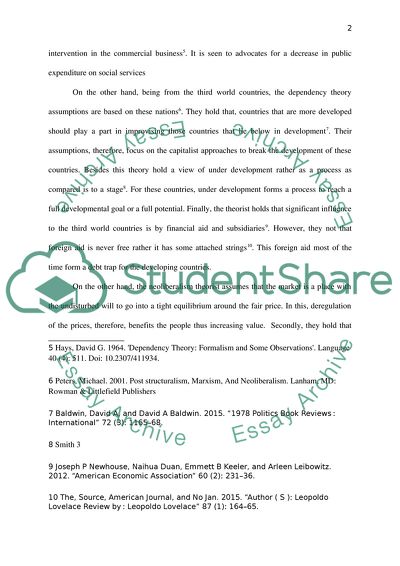Cite this document
(“Compare and Contrast Dependency Theory and Neoliberalism Essay”, n.d.)
Compare and Contrast Dependency Theory and Neoliberalism Essay. Retrieved from https://studentshare.org/social-science/1692350-compare-and-contrast-dependency-theory-and-neoliberalism
Compare and Contrast Dependency Theory and Neoliberalism Essay. Retrieved from https://studentshare.org/social-science/1692350-compare-and-contrast-dependency-theory-and-neoliberalism
(Compare and Contrast Dependency Theory and Neoliberalism Essay)
Compare and Contrast Dependency Theory and Neoliberalism Essay. https://studentshare.org/social-science/1692350-compare-and-contrast-dependency-theory-and-neoliberalism.
Compare and Contrast Dependency Theory and Neoliberalism Essay. https://studentshare.org/social-science/1692350-compare-and-contrast-dependency-theory-and-neoliberalism.
“Compare and Contrast Dependency Theory and Neoliberalism Essay”, n.d. https://studentshare.org/social-science/1692350-compare-and-contrast-dependency-theory-and-neoliberalism.


